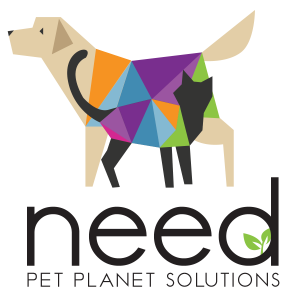Dr. Al Townshend
The health of the teeth is a critical factor in the long-term health of every animal. When veterinarians, doctors, and dentists talk about dental health, they are referring to the whole mouth and not just the teeth. Oral health encompasses the teeth, gums, tongue, throat, the lining of the mouth and cheeks.
It has been estimated that most dogs and cats will have some form of oral disease developing by the age of three. In both humans and our pets, periodontal disease is the most common problem. If left unattended, it can cause excessive discomfort, result in infection, loss of teeth, and pain, which can lower the quality of life and even shorten the life span.
We humans brush our teeth daily and visit the dentist regularly for cleaning and visual inspection because we understand the importance of oral hygiene. We are willing to dedicate significant time each day and the substantial expense of dentist visits for cleaning and inspection to support oral heal and prevent more serious issues and even greater cost.
Our pets deserve the same consideration for the very same reasons.
Eventually, pets will need their teeth cleaned. Making every effort to slow the disease process and maintain the oral health of pets protects the animal’s quality of life and saves substantial cost.
Pets require anesthesia to clean the teeth under the gum line correctly. While today the procedure is safe, it requires additional measures such as a pre-anesthetic examination and blood work which can increase the cost of a pet’s dental cleaning well beyond the human cost.
Slowing the Process of Gum and Dental Disease
Most experts agree that regular brushing is the best way to slow the formation of plaque and tartar in a dog or cat’s mouth, as it is for humans. It is not as easy to brush a pet’s teeth like a human unless it is trained to accept the procedure. Some animals accept brushing easily, and others struggle. Starting the training early in a pet’s life offers the best chance of successfully training the pet to embrace it. You can teach an older dog to accept the process, but it usually takes patience and perseverance from both the pet and Guardian. Check out our Dental Health section for additional information on brushing. (direction for brush training for cats, and for dogs).
Beyond Brushing
Diet is an essential factor in oral health.
- There are several less expensive grocery store diets that promote oral health. Most have synthetic chemicals added to support the claim. Naturally, Guardians would not want their pets exposed to these substances.
- Some believe that all dry kibble can help clean the teeth. Veterinarians agree that there is little benefit from most dry kibble. The larger the kibble, the more chewing, and the greater potential benefit.
- Diets high in animal protein and lower in carbohydrates, support a healthy microbiome (bacteria) in the mouth and reduce plaque and tartar formation.
- Raw food recipes retain natural enzymes that are destroyed by cooking and support a healthy mouth. The ground bone in many raw foods acts as an abrasive and can help clean the teeth.
Supplements that support a healthy mouth and enhance the immune system can improve oral health.
- Probiotics are healthy organisms that are essential for oral and digestive health. They are also an integral part of the body’s immune system.
- The Omega 3 fatty acids in fish oils reduce inflammation in the mouth and the rest of the body. They support the immune system and are essential for many of the systems of the body.
Chewing is a natural behavior that is an essential part of oral hygiene. There are many different chew items available for pets. All pets must be watched closely when offered chews.
- Chew toys must be safe to ensure there are no harmful dyes or chemicals. They must be sturdy and have no pieces or strings that can be chewed off and swallowed.
- Dental chews are generally designed to scrub the teeth and gums. The must be chosen based on the size pf the p[et and close observation while chewing is essential to prevent swallowing too large a piece
- Animal body parts such a collagen chews, raw and smoked bones, bully sticks, jerky treats, and fish skins encourage chewing.
Oral sprays and gels that discourage harmful bacteria and dissolve plaque can be easily applied to the teeth and gums and slow dental disease.
A close working relationship with a trusted veterinarian of important; however, there are many ways to support long-term oral health at home that save you and your pet from costly veterinary bills. Check out all of the items for oral health at your favorite Pet Planet store here.




